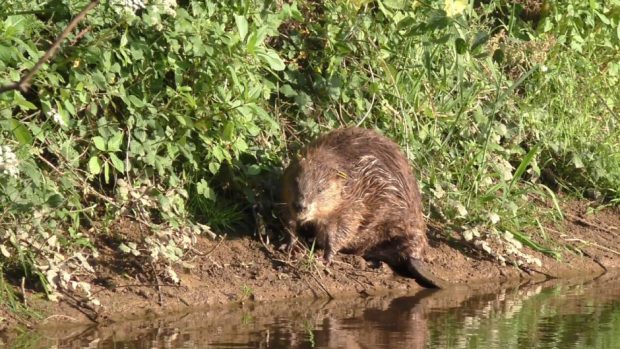Backers of the reintroduction of wolves and bears to a fenced-off Highland reserve have been accused of “patronising” residents and trying to turn the area into a “theme park”.
Community Land Scotland condemned the proposals, saying they risked repeating the type of “tragic errors” made in the past two centuries by “privileged elites”.
Several so-called “rewilding” initiatives have been proposed for the Highlands in recent years to reintroduce various species and eco-systems, while providing a new tourist attraction.
A scheme being developed by The European Nature Trust (Tent) has suggested creating a 50,000-acre reserve, that would be worth £6million after a decade, and create about 37 full time and 26 seasonal jobs.
But Community Land Scotland, which represents the owners of 500,000-acres of community land, has now told the group it can find “little merit” in the proposal.
In a scathing response to a consultation, the group said: “To have a man-made and fenced-in ‘wilderness’ now created, as proposed, with the reintroduction of species, would be as artificial a creation as the current devastated and forlorn landscape which is much of the Highlands today.
“Further, however, such an artificial creation would be a denial of Highland history and heritage seeking, as it appears to do, to exclude humans from the landscape of which they have been an intrinsic part historically, other than as guided visitors.
“The approach suggested smacks of much that has been wrong with the Highlands over the past two centuries, with privileged elites seeking to live out their vision of the place, and heads in a direction that would repeat those tragic errors.”
The organisation added that “significant environmental renewal” was already taking place in the Highlands “without the need for vast fences or excluding people”, and that the proposal would breach Scotland’s “cherished” right to roam.
“The proposal reads like the creation of a theme park. The suggested benefits of employment for local people appears as secondary to the desire to re-introduce species as a philosophical and cultural construct of how Tent think a small part of the Highlands should look and be managed,” it said.
“The suggestion that the Tent reserve would be able to educate local people about the benefits of the ecological preservation and restoration environment appears as patronising.”
Tent declined to comment last night.
Its website states: “The vision is to create the first fenced wildlife and wilderness reserve in Europe, where we will restore wolves and bears to an area of 200 square kilometres to naturally regulate browsers, red and roe deer, and improve biodiversity.
“The project is about attempting something different in an area of upland Scotland where there is huge potential for more sustainable economic opportunities. It is a chance to boost a dwindling natural environment while engaging people on a national and global level.”
